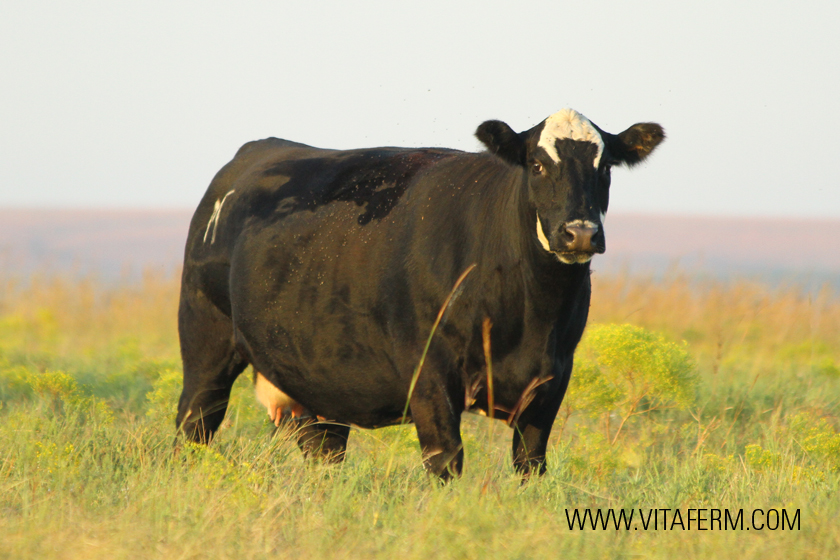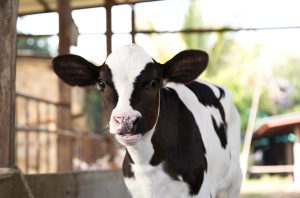 For cow/calf producers, there are certain times that significantly impact the operation’s profitability. Failure to manage the nutrition of the cow herd during these critical times can hurt productivity in ways that producers often do not think about. Supplementing the herd with important vitamins, minerals and proteins before calving and through breeding has been research-proven to improve a cow’s body condition and conception rates and, in turn, overall calf health and survival rates, making this a critical time for supplementation.
For cow/calf producers, there are certain times that significantly impact the operation’s profitability. Failure to manage the nutrition of the cow herd during these critical times can hurt productivity in ways that producers often do not think about. Supplementing the herd with important vitamins, minerals and proteins before calving and through breeding has been research-proven to improve a cow’s body condition and conception rates and, in turn, overall calf health and survival rates, making this a critical time for supplementation.
In a beef herd, profitability is determined by several factors, including the total weight of calves sold, cost of maintaining the cow herd, percentage of cows bred that wean a calf, and the price received for calves. The most critical time to influence these factors are the two months prior to calving, and through breeding. A cow’s nutrition during this critical stage of production also has a direct impact on the ability of the cow to rebreed in a timely manner.
“Research by the University of Nebraska with heifer offspring from cows grazing a dormant range, showed that in areas where protein was deficient in the forage, protein supplementation to the pregnant cow in late gestation resulted in heifer offspring that were heavier at weaning, pre-breeding, first pregnancy diagnosis, and before their second breeding season, as well as had greater pregnancy rates and calving 21 days earlier than heifers from non-protein supplemented cows,” said Kevin Glaubius, BioZyme® Director of Nutrition and Technical Sales. “These recent studies clearly show that there are areas where many beef producers lose productivity in the normal production settings that are never measured.”
It is important to make sure feed rations are formulated to meet or exceed the nutritional requirements of the cow during early gestation (roughly the first 60 days). While the particular vitamin/mineral pack fed during this time is very important, BioZyme stresses to its customers that it is also imperative to ensure that the proper amounts of energy and protein are supplied. These are needed to meet the increased demands during lactation and subsequent breeding.
Energy is probably the most important nutritional consideration in beef cattle production. Cows need energy to maintain milk production as well as to initiate and maintain pregnancy. Energy requirements increase significantly during the last third of pregnancy and while the cow is producing milk. Protein is the second limiting nutrient in most rations. Without adequate amounts of protein in the diet, daily feed consumption drops off, feed passage rates decrease and overall digestive efficiency declines.
Research has proven that feeding Amaferm, found in BioZyme’s highly fortified Concept•Aid product line, can increase energy production by 16% and microbial protein by 34%. In addition, Concept•Aid is formulated at 250% of nutritional requirements to ensure the highest producing 25% of the cowherd is not nutritionally challenged. Concept-Aid contains proteinated copper, zinc and manganese to ensure maximum availability to the animal.
“BioZyme has experienced tremendous growth in its Concept•Aid mineral line as more producers are implementing estrus synchronization, AI and even embryo transfer technologies,” said Glaubius. “When producers make the decision to add as much value as possible to their herd, they also understand the nutritional investment required to achieve the level of success they desire.”
All of BioZyme’s products also contain its proprietary additive Amaferm®, a direct-fed microbial that stimulates the beneficial microbial population in the rumen. BioZyme peer-reviewed research shows that feeding Amaferm at the recommended levels results in producers seeing on average a 17% improvement in fiber digestibility. By increasing fiber digestion, subsequently the amount of protein and energy available to the animal increases. This certainly helps keep younger, more nutritionally stressed animals in the proper energy and protein balance for breeding.
Phosphorus is commonly referred to as the “fertility” mineral. A deficiency can severely affect reproductive performance. Insufficient amounts of phosphorus in the ration results in reduced milk production and consequently lower calf weaning weights. Phosphorus requirements increase by 12% from mid pregnancy to the last month of gestation. After calving, phosphorus requirements increase by 50%. BioZyme offers a variety of phosphorus levels in its Concept•Aid line to ensure that these needs are balanced with the type of forage being fed.
Following phosphorus in order of importance are the organic trace minerals. Organic trace minerals are unique in that they have increased bioavailability to the animal. BioZyme has spent considerable time researching trace mineral options and utilizes a combination of organic and inorganic trace minerals to ensure that the cow and the rumen microbes responsible for digestion have more than sufficient access to copper, zinc, and manganese to ensure proper breeding success even in the presence of potential antagonisms such as iron, sulfur and molybdenum.
Concept•Aid is also fortified with a high level of vitamin E, which is very important to help ensure a quick recovery from calving and timely reproductive tract repair thereby shortening the postpartum interval.
The best recommendation for improved reproductive success is to feed cows a mineral that improves the digestibility of the forage that the cow consumes herself throughout the year, take advantage of improvements in body condition throughout the summer and fall, and improve her nutritional status through improved mineral nutrition. Mineral supplementation may not replace all of a cow’s winter supplement needs, however, it will reduce energy and protein supplementation costs and the average number of days from calving to rebreeding, while increasing the total pounds of calves weaned and whole-herd profitability potential, leaving producers more time to focus on their other breeding strategies.


